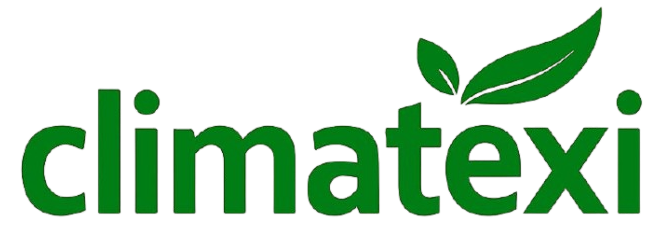𝐂𝐥𝐢𝐦𝐚𝐭𝐞 𝐂𝐡𝐚𝐧𝐠𝐞 𝐒𝐨𝐥𝐮𝐭𝐢𝐨𝐧𝐬 𝐓𝐡𝐚𝐭 𝐏𝐚𝐲 𝐘𝐨𝐮 𝐁𝐚𝐜𝐤 𝐚𝐬 𝐚 𝐂𝐫𝐞𝐚𝐭𝐨𝐫: 𝐀 𝐂𝐫𝐞𝐚𝐭𝐨𝐫’𝐬 𝐁𝐥𝐮𝐞𝐩𝐫𝐢𝐧𝐭
Identify Your Unique Climate Focus and Mission
Start by selecting a specific climate change issue or solution that you are passionate about and knowledgeable in—such as renewable energy, zero waste living, sustainable fashion, or carbon farming. Craft a clear mission that communicates your purpose and how your content will contribute to climate awareness and action.
Build Your Owned Digital Platform
Create your own website or blog as your digital home base where you publish evergreen, high-quality climate content that educates, inspires, and empowers your audience. Growing an email list here lets you build direct, lasting relationships beyond social media algorithms.
Develop Diverse Content Formats That Engage
Utilize a mix of videos, written articles, infographics, podcasts, and interactive webinars to reach wider audiences. Make your content relatable by including personal stories, real-world examples, and the latest scientific insights simplified for your followers.
Create Multiple Monetization Streams Rooted in Climate Solutions
Affiliate Partnerships: Recommend sustainable products and services you trust, earning commissions while helping your audience discover eco-friendly brands.
Sponsored Content with Authentic Climate Brands: Collaborate with companies genuinely committed to sustainability to create sponsored posts or videos that align with your values.
Online Courses and Workshops: Package your expertise into paid courses teaching climate literacy, sustainable lifestyle steps, or how to start green businesses.
Crowdfunding and Memberships: Use Patreon, Substack, or similar platforms to invite supporters to contribute regularly in exchange for exclusive content, Q&A sessions, or early access.
Merchandise: Sell branded eco-friendly merchandise like reusable items or educational materials that reinforce your climate message and generate income.
Leverage Social Media and Viral Campaigns Strategically
Use TikTok, Instagram, X, and YouTube to share bite-sized, engaging, shareable climate facts, challenges, tips, and calls to action. Utilize trending hashtags and collaborate with influencers in the green space to expand reach organically.
Engage Your Community with Interactive and Impact-Driven Content
Host live discussions, interactive polls, and storytelling sessions to deepen engagement. Encourage your audience to share their climate actions and successes, turning followers into active participants and brand advocates.
Maintain Transparency and Show Tangible Impact
Regularly update your audience on how their support translates into real-world climate outcomes—whether through donations, advocacy impact, or adoption of sustainable habits. This builds trust and encourages continued backing.
Adapt and Diversify for Long-Term Sustainability
Monitor platform changes and audience preferences; diversify income streams so you’re not reliant on any single source like ad revenue or sponsorships. Expand into new formats like podcasts or AR/VR experiences to keep your offerings fresh.
Collaborate and Network Within the Climate Creator Space
Partner with other climate creators, NGOs, and sustainable businesses to cross-promote, co-host events, or build joint products. Collective efforts amplify impact and audience growth.
Keep Learning and Innovating
Stay updated with climate science, emerging solutions, and creator economy trends so your content remains relevant, authoritative, and innovative. Attend conferences, webinars, and foster continuous skill development.
By following this blueprint, creators dedicated to climate change solutions can build thriving, resilient content businesses that not only educate and inspire but also generate meaningful income. This approach leverages creativity, authenticity, community, and diversified revenue, ensuring your climate advocacy pays you back and makes a real difference.
𝐂𝐥𝐢𝐦𝐚𝐭𝐞 𝐂𝐡𝐚𝐧𝐠𝐞 𝐒𝐨𝐥𝐮𝐭𝐢𝐨𝐧𝐬 𝐓𝐡𝐚𝐭 𝐏𝐚𝐲 𝐘𝐨𝐮 𝐁𝐚𝐜𝐤 𝐚𝐬 𝐚 𝐂𝐫𝐞𝐚𝐭𝐨𝐫: 𝐀 𝐂𝐫𝐞𝐚𝐭𝐨𝐫’𝐬 𝐁𝐥𝐮𝐞𝐩𝐫𝐢𝐧𝐭
Identify Your Unique Climate Focus and Mission
Start by selecting a specific climate change issue or solution that you are passionate about and knowledgeable in—such as renewable energy, zero waste living, sustainable fashion, or carbon farming. Craft a clear mission that communicates your purpose and how your content will contribute to climate awareness and action.
Build Your Owned Digital Platform
Create your own website or blog as your digital home base where you publish evergreen, high-quality climate content that educates, inspires, and empowers your audience. Growing an email list here lets you build direct, lasting relationships beyond social media algorithms.
Develop Diverse Content Formats That Engage
Utilize a mix of videos, written articles, infographics, podcasts, and interactive webinars to reach wider audiences. Make your content relatable by including personal stories, real-world examples, and the latest scientific insights simplified for your followers.
Create Multiple Monetization Streams Rooted in Climate Solutions
Affiliate Partnerships: Recommend sustainable products and services you trust, earning commissions while helping your audience discover eco-friendly brands.
Sponsored Content with Authentic Climate Brands: Collaborate with companies genuinely committed to sustainability to create sponsored posts or videos that align with your values.
Online Courses and Workshops: Package your expertise into paid courses teaching climate literacy, sustainable lifestyle steps, or how to start green businesses.
Crowdfunding and Memberships: Use Patreon, Substack, or similar platforms to invite supporters to contribute regularly in exchange for exclusive content, Q&A sessions, or early access.
Merchandise: Sell branded eco-friendly merchandise like reusable items or educational materials that reinforce your climate message and generate income.
Leverage Social Media and Viral Campaigns Strategically
Use TikTok, Instagram, X, and YouTube to share bite-sized, engaging, shareable climate facts, challenges, tips, and calls to action. Utilize trending hashtags and collaborate with influencers in the green space to expand reach organically.
Engage Your Community with Interactive and Impact-Driven Content
Host live discussions, interactive polls, and storytelling sessions to deepen engagement. Encourage your audience to share their climate actions and successes, turning followers into active participants and brand advocates.
Maintain Transparency and Show Tangible Impact
Regularly update your audience on how their support translates into real-world climate outcomes—whether through donations, advocacy impact, or adoption of sustainable habits. This builds trust and encourages continued backing.
Adapt and Diversify for Long-Term Sustainability
Monitor platform changes and audience preferences; diversify income streams so you’re not reliant on any single source like ad revenue or sponsorships. Expand into new formats like podcasts or AR/VR experiences to keep your offerings fresh.
Collaborate and Network Within the Climate Creator Space
Partner with other climate creators, NGOs, and sustainable businesses to cross-promote, co-host events, or build joint products. Collective efforts amplify impact and audience growth.
Keep Learning and Innovating
Stay updated with climate science, emerging solutions, and creator economy trends so your content remains relevant, authoritative, and innovative. Attend conferences, webinars, and foster continuous skill development.
By following this blueprint, creators dedicated to climate change solutions can build thriving, resilient content businesses that not only educate and inspire but also generate meaningful income. This approach leverages creativity, authenticity, community, and diversified revenue, ensuring your climate advocacy pays you back and makes a real difference.








